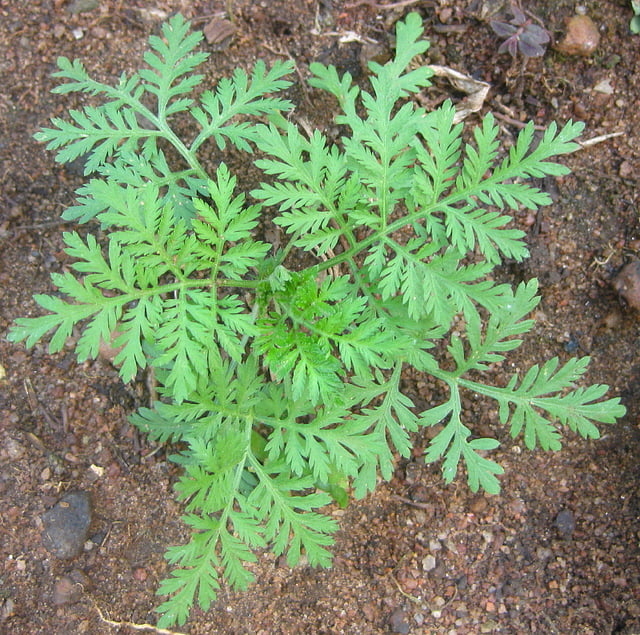Although tobacco in the form of cigarettes is generally recognized as being a killer of millions, the plant has been used by Hebrew University researchers to produce an effective anti-malaria drug.
A genetically engineered form of artemisinin, a natural compound that produces large quantities of the anti-malaria drug – was announced Sunday by the Yissum Research Development Company – the Hebrew University of Jerusalem’s technology transfer company. The biosynthesis method – a novel way of producing Artemisia annua, which is naturally produced by sweet wormwood plants – was developed by Prof. Alexander Vainstein and the research was published as a letter in the latest issue of the journal Nature Biotechnology.
Combating malaria is one of the eight Millennium Development Goals described in the UN Millennium Declaration signed by all UN members 11 years ago. An important way to control the deadly parasitic disease that affects mostly the Third World is prompt and effective treatment with artemisinin-based combination therapies.
Related Stories:
Marijuana Prevents Post-Traumatic Symptoms, Study Shows
But low-cost artemisininbased drugs are in short supply because of the high cost of obtaining the natural or chemically synthesized drug. Despite extensive efforts made in the last decade in metabolic engineering of the drug in both microbial and heterologous plant systems, no one has been able to produce artemisinin itself.
Malaria, caused by the Plasmodium parasite, is transmitted via mosquitoes. Symptoms include fever, headache and vomiting, and they usually appear between 10 and 15 days after the mosquito bite. If left untreated, malaria can quickly become life threatening by disrupting the blood supply to vital organs. Over three billion people are at risk of malaria, and about 250 million new malaria cases occur each year, causing nearly a million deaths, mostly of people living in poor countries.
Vainstein and graduate student Moran Farhi developed genetically engineered tobacco plants carrying genes encoding the entire biochemical pathway needed for producing artemisinin. In light of tobacco’s high biomass and rapid growth, this invention will enable a cheap production of large quantities of the drug, paving the way for the development of a sustainable plant-based platform for the commercial production of an antimalarial drug, said Yissum, which patented it and is now seeking a partner for its further development.
To continue reading this story, click here
Via http://www.jpost.com/
Image by tonrulkens
Related posts

Israeli Medical Technologies That Could Change The World

Harnessing Our Own Bodies For Side Effect-Free Weight Loss

Missing Protein Could Unlock Treatment For Aggressive Lung Cancer




Facebook comments